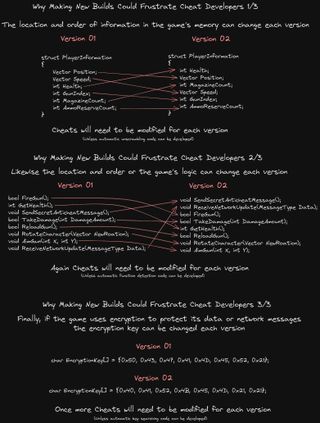Rainbow Six Siege's secret new anti-cheat tactic is causing a stir
Ubisoft says it's "confident" in the strategy, although it may have the side effect of breaking certain overlays.

A rumor about the secret workings of Ubisoft's latest Rainbow Six Siege anti-cheat system has begun to give the new tactic a heroic aura on the internet. The claim going around on Twitter is that Ubisoft is doing something deviously simple: updating the Rainbow Six Siege executable every two hours, forcing cheat makers to keep up with an endless treadmill of cheat-breaking changes.
There are reasons to doubt the specifics of that explanation, but one anti-cheat expert tells PC Gamer that it actually is a viable anti-cheat method. And even if Siege isn't actually being reborn every two hours, something similar may be happening.
Ubisoft stated last week that it's trying out a new anti-cheat technique on PC, but to avoid giving cheat makers any hints, the company won't say how it works. The evidence for the 'new build every two hours' claim comes from posts in a cheat makers' forum as well as SteamDB logs, which do show that Rainbow Six Siege's Steam files are being updated with surprising frequency.
One poster on that cheat maker's forum describes the system differently, however. Ubisoft isn't sending every Siege player a new executable every two hours, they say, but instead created a bunch of unique executables a few weeks ago and has started distributing them to players randomly. The principle is similar: Life gets harder for professional cheat-makers because each of their customers may now have a slightly different version of the game. A Siege dataminer also says that this is what's happening.
Paul Chamberlain, former anti-cheat lead on Valorant and now head of a startup game studio called New Avalon, tells me that the new builds every two hours idea is "a decent strategy," but would be "really time consuming for a developer."
"I think we don't see this technique from game developers very often due to the operational complexity, but I think it could be effective," Chamberlain said. "Even if it doesn't completely prevent cheating it does make it more difficult and expensive to make cheats and raises the skill floor required for new cheat developers to tackle the game."
If you wanted to go all out, however, it would be even better to give each player their own unique version of the game, "since that'd be the maximum amount of effort for cheat developers to keep up with," said Chamberlain. As appealing as it is to imagine a RainbowSix.exe factory that spits out a new version every two hours, that context does make the other explanation sound more probable: Ubisoft made a bunch of unique Siege builds (if not going so far as to make one per player) and then distributed them randomly.
The biggest gaming news, reviews and hardware deals
Keep up to date with the most important stories and the best deals, as picked by the PC Gamer team.

Both ideas are appealing for their simplicity. Cheaters keep picking your locks? Just throw new locks at them until they're buried in them. You don't need technical knowledge to understand that, and it sounds delightfully like a Sisyphean punishment for cheat makers. Sadly, cheat developers can write tools that help them adapt, Chamberlain says, so whatever Ubisoft doing isn't going to be the One Simple Trick that thwarts them forever. (We can dream, though!)
Ubisoft says it's "confident" in its new anti-cheat method, which was developed over recent months. The system has reportedly broken Siege stat trackers, though, and Ubisoft hasn't said whether or not those benign third-party overlays will be usable in the future. The publisher has already said it won't divulge specifics about its anti-cheat methods, but I've asked for comment on the overlay issue.

Tyler grew up in Silicon Valley during the '80s and '90s, playing games like Zork and Arkanoid on early PCs. He was later captivated by Myst, SimCity, Civilization, Command & Conquer, all the shooters they call "boomer shooters" now, and PS1 classic Bushido Blade (that's right: he had Bleem!). Tyler joined PC Gamer in 2011, and today he's focused on the site's news coverage. His hobbies include amateur boxing and adding to his 1,200-plus hours in Rocket League.
Most Popular






